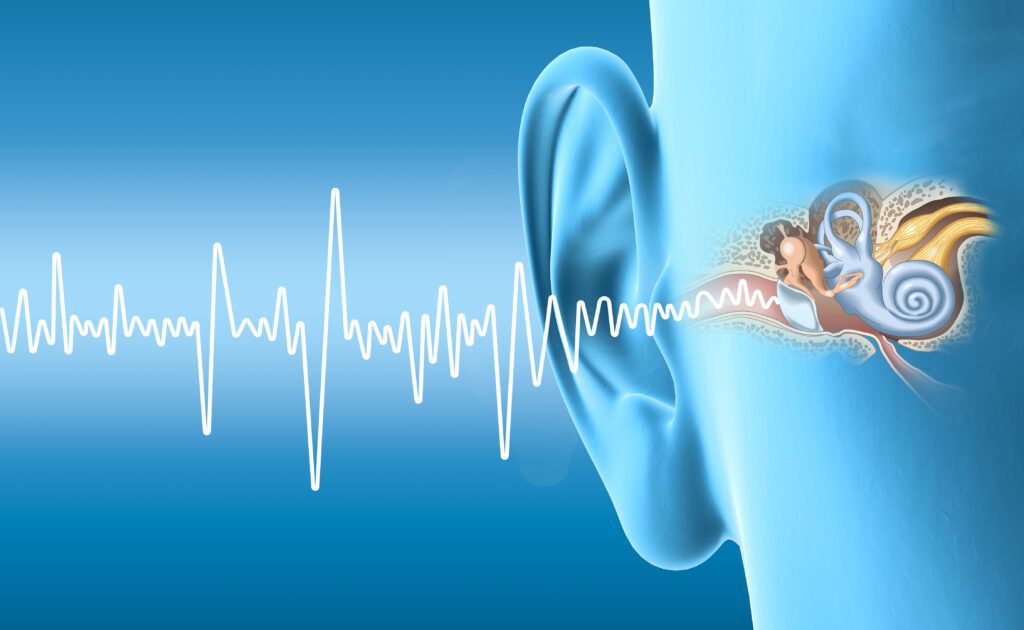Hi Veterans, Brian Reese here with VA Claims Insider, and in this expert-level post, I’m going to reveal and explain how to service connect Anxiety Secondary to Tinnitus VA disability, even if you’ve already filed or been denied VA benefits previously.
You’ll also learn about secondary service connection and the “3 Magic Pillars” of success to include medical evidence requirements.
Finally, you’ll discover how to get a high-quality Nexus Letter to help you prove secondary service connection under the law.
- Anxiety Secondary to Tinnitus: Is There a Connection?
- Is it Possible to Service Connect Anxiety Secondary to Tinnitus VA Disability?
- Can VA Secondary Conditions be Service Connected?
- What is Secondary Service Connection?
- Three Evidentiary Elements for Secondary Service Connection
- Need a Nexus Letter to Help Establish Secondary Service Connection?
Anxiety Secondary to Tinnitus: Is There a Connection?

Plenty of medical research studies point to the prevalence of Anxiety and Depression mental disorders in veterans with Tinnitus.
For example, a 2015 joint study in coordination a VA Medical Center in California called, “The Correlation of the Tinnitus Handicap Inventory with Depression and Anxiety in Veterans with Tinnitus,” revealed that a shocking 79.1% of the 91 Tinnitus sufferers had a diagnosis of Anxiety, 59.3% had Depression, and 58.2% suffered from BOTH Anxiety and Depression.
According to the American Tinnitus Association, Anxiety and Depression issues can be both a contributing factor to Tinnitus and a consequence of burdensome Tinnitus.
Tinnitus symptoms often result in feelings of anxiety and depression.
Current estimates suggest that 48-78% of patients with severe tinnitus also experience depression, anxiety, or some other behavioral disorder.
13% of ATA’s membership self-identified as being diagnosed with a mental health issue. At the same time, pre-existing behavioral conditions may make it more likely that the patient will experience tinnitus as a burdensome condition.
For example, one large cohort population study found that people with Generalized Anxiety Disorder are nearly 7x more likely to experience chronic, burdensome tinnitus.
Is it Possible to Service Connect Anxiety Secondary to Tinnitus VA Disability?

Yes, Anxiety can be service connected secondary to Tinnitus.
It’s also possible to connect Depression and Anxiety secondary to Tinnitus.
The VA Ratings for Anxiety secondary to Tinnitus are 0%, 10%, 30%, 50%, 70%, or 100%, depending upon the severity of your anxiety disorder, and how your anxiety symptoms affect your work, life, and social functioning.
For example, a veteran may only have a 10% rating for Tinnitus but could possibly receive a 70% or 100% VA rating (lower or higher rating possible as well) for Anxiety secondary to Tinnitus.
VA Disability Ratings for Anxiety Explained:
How is Anxiety Rated by the VA?
Medical Research Study:
Tinnitus Among Patients with Anxiety Disorder: A Nationwide Longitudinal Study.
BVA Case History Example:
Generalized Anxiety Disorder and Major Depressive Disorder Secondary to Tinnitus Is Granted.
Can VA Secondary Conditions be Service Connected?
VA secondary conditions include any of the 900+ disabilities listed in CFR Title 38, Part 4, the Schedule for Rating Disabilities that can be service connected SECONDARY to a current VA disability you’re already rated for at 0% or higher.
For example, let’s say you’ve got Tinnitus service connected at 10%, but because of the severity of your Tinnitus, you’ve developed Migraine Headaches.
You can open a new VA claim on the VA.gov website, and file a claim for Migraines Secondary to Tinnitus, and get service connected and rated at 0%, 10%, 30%, or 50% for your Migraine (Headaches), depending on the Frequency, Severity, and Duration of your symptoms as well as how your symptoms negatively affect your work, life, and/or social functioning.
What is Secondary Service Connection?
In accordance with 38 CFR § 3.310 disabilities that are proximately due to, or aggravated by, service-connected disease or injury, a current disability condition, which is proximately due to or the result of a service-connected disease or injury shall be service connected.
Service connection on a secondary basis requires a “showing of causation.”
A showing of causation requires that the secondary VA disability claim is “proximately due to” or “aggravated by” another service-connected disability.
There are three evidentiary elements that must be satisfied to prove VA secondary service connection under the law:
- A medical diagnosis of the secondary VA disability you’re attempting to link to the current service connected disability (must be documented in a medical record) AND
- A current service-connected primary disability (e.g., your current list of service connected disabilities from your VA.gov account) AND
- Medical nexus evidence establishing a connection between the service-connected primary condition AND the current disability you’re trying to connect secondary (e.g., Migraines, Sleep Apnea, GERD, IBS, Erectile Disfunction / Female Sexual Arousal Disorder, Radiculopathy, etc.)

Three Evidentiary Elements for Secondary Service Connection
The first part can be satisfied with any existing medical evidence in service treatment records, VA medical records, or any private medical records.
The second part can be satisfied with a veteran’s existing service-connected disability rated at 0% or higher.
The third part, and often the missing link needed to establish secondary service connection, can be satisfied with a credible Medical Nexus Letter (Independent Medical Opinion) from a qualified medical provider.
>> Click HERE for a list of doctors who write nexus letters for veterans!
Did you know there are HUNDREDS of common secondary VA claims that you can get service connected by law?
Truth bomb 💣 here veterans…
You could be missing out on thousands of dollars of tax-free disability compensation you deserve by law, and not even realize that your current VA disability might be caused or aggravated by an existing service connected disability.
Pro Tip: A VA Nexus Letter is HIGHLY RECOMMENDED to help establish secondary service connection.
Why?
Because “Medical Nexus Evidence” is needed to satisfy the third evidentiary element that must be satisfied to prove your secondary VA claim on an “at least as likely as not” basis.
Click HERE to read our Top 3 Reasons Why Veterans Should Get an Independent Medical Opinion (Nexus Letter).
Need a Nexus Letter to Help Establish Secondary Service Connection?
Click HERE now to join VA Claims Insider Elite, our premier education-based membership program, which also gets you discounted access to independent medical providers in our referral network for medical examinations, VA disability evaluations, and credible Nexus Letters for a wide range of conditions!
We’re a company OF veterans, BY veterans, FOR veterans.
And we help veterans get the VA rating they deserve in less time, if you’ve already filed, been denied, or have given up hope.

Brian Reese
Brian Reese is one of the top VA disability benefits experts in the world and bestselling author of You Deserve It: The Definitive Guide to Getting the Veteran Benefits You’ve Earned (Second Edition).
Brian’s frustration with the VA claim process led him to create VA Claims Insider, which provides disabled veterans with tips, strategies, and lessons learned to win their VA disability compensation claim, faster, even if they’ve already filed, been denied, gave up, or don’t know where to start.
As the founder of VA Claims Insider and CEO of Military Disability Made Easy, he has helped serve more than 10 million military members and veterans since 2013 through free online educational resources.
He is a former active duty Air Force officer with extensive experience leading hundreds of individuals and multi-functional teams in challenging international environments, including a combat tour to Afghanistan in 2011 supporting Operation ENDURING FREEDOM.
Brian is a Distinguished Graduate of Management from the United States Air Force Academy, Colorado Springs, CO, and he holds an MBA from Oklahoma State University’s Spears School of Business, Stillwater, OK, where he was a National Honor Scholar (Top 1% of Graduate School class).



